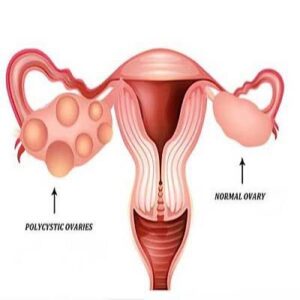PCOD
Understanding PCOD: Causes, Symptoms, and Treatment

Polycystic Ovarian Disease (PCOD) is a common hormonal disorder affecting women of reproductive age. It leads to irregular menstrual cycles, hormonal imbalances, and multiple small cysts on the ovaries. PCOD can impact fertility and overall health if left unmanaged.
Causes of PCOD
The exact cause of PCOD is unknown, but several factors contribute to its development:
Hormonal Imbalance – Increased levels of androgens (male hormones) lead to irregular ovulation.
Insulin Resistance – High insulin levels can trigger excess androgen production.
Genetics – Family history plays a crucial role in developing PCOD.
Lifestyle Factors – Poor diet, lack of exercise, and obesity may worsen the condition.
Common Symptoms of PCOD
PCOD symptoms vary from person to person but often include:
Irregular or missed periods
Excessive hair growth (hirsutism) on the face and body
Acne and oily skin
Weight gain, especially around the abdomen
Thinning hair or hair loss
Difficulty in conceiving
Mood swings and depression
Diagnosis and Medical Tests
Doctors diagnose PCOD through:
Ultrasound – Detects ovarian cysts.
Blood Tests – Checks hormone levels (androgens, insulin, and thyroid hormones).
Physical Examination – Identifies symptoms like acne and hair growth.
